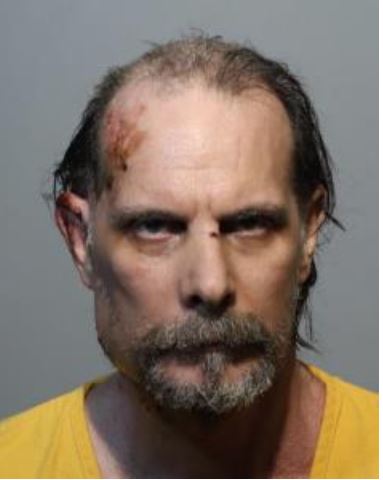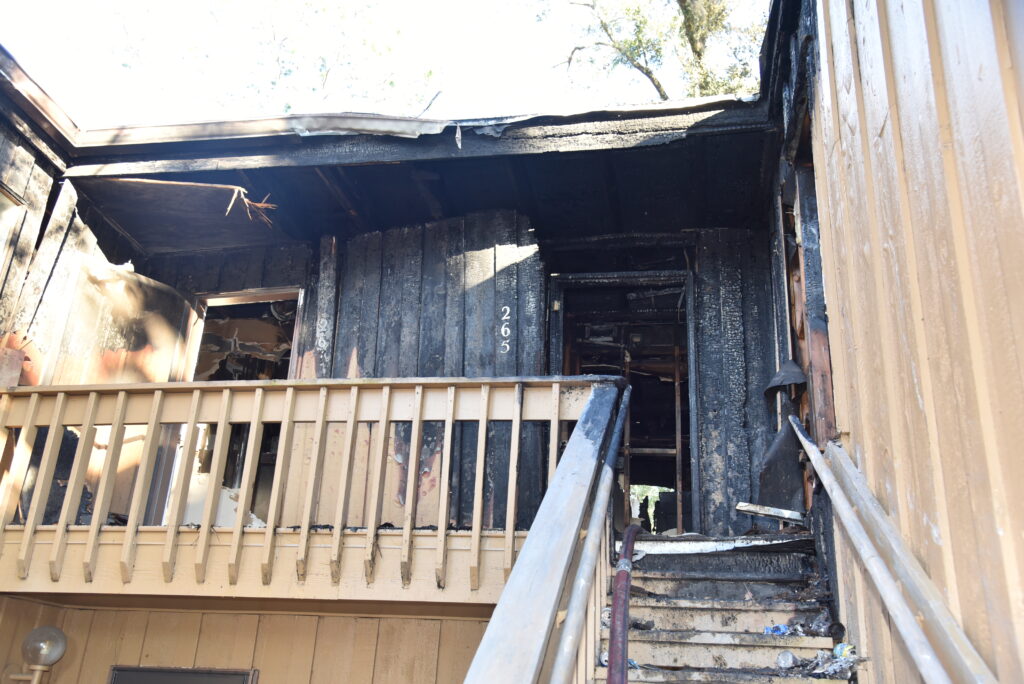A man who set his Longwood condominium complex ablaze out of anger at his homeowners’ association has been sentenced to 12 years in prison followed by 15 years’ probation.
A Seminole County Jury found MARC L. HERMANN, 56, guilty on April 10 of arson of an occupied structure following a three-day trial presented by Assistant State Attorneys Sha-Kiah Walker and Donovan Wagner.

Fire investigators said Hermann doused his condominium unit with gasoline before igniting it in January 2023. Residents of neighboring units described hearing an explosion that shook their building and then dodging flaming debris as they fled their homes. One man jumped from a second-floor balcony to escape the fire.
A paramedic who treated Hermann at the scene said Hermann told him he started the fire in an act of revenge against the homeowner’s association in charge of the property at State Road 434 and Wekiva Springs Road. An accelerant-detecting K9 dog alerted to two different spots in the home and to the shirt Hermann was wearing.
Hermann had owed about $28,800 in unpaid dues and related fees to the association. His unit had been foreclosed upon and sold at auction by the HOA in July 2022 to recoup those costs, as Florida law allows. But Hermann had refused to leave.
The fire Hermann started destroyed three other families’ homes.
In a victim-impact statement sent to the judge, Erica and Jeffrey DeFosse wrote, “The financial costs have been phenomenal. We have had to rent an apartment for over two years as our condo has been rebuilt, and the costs have depleted our savings … Marc Hermann showed so little regard for the lives of us who were home when he decided to burn down the condo.”
Besides the 12-year prison sentence (with credit for 2.2 years’ time served while awaiting trial), Circuit Judge Jessica Recksiedler ordered Hermann to:
- Pay restitution to neighbors whose homes were destroyed or damaged in the fire
- Get a job within 60 days of release from prison for the purposes of paying restitution
- Undergo a mental health evaluation and any recommended treatment
- Perform 100 community service hours, preferably at a nonprofit fire-safety facility’


